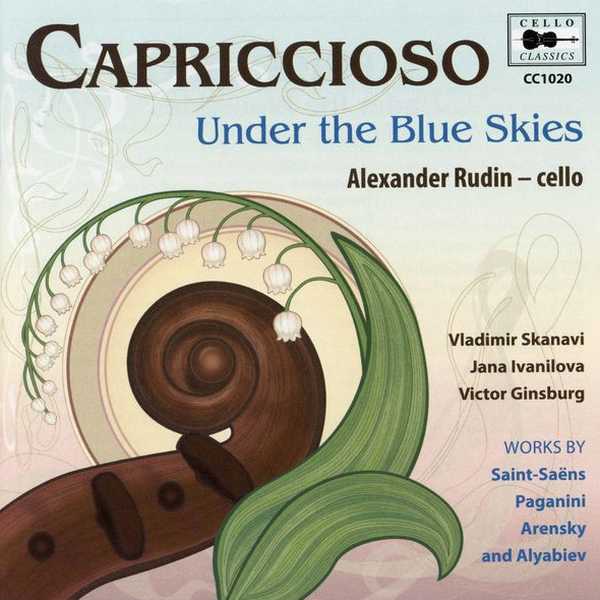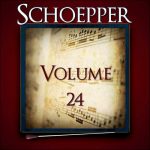
Performer: Alexander Rudin, Vladimir Skanavi, Jana Ivanilova, Victor Ginsburg
Format: FLAC (tracks)
Label: Cello Classics
Catalogue: CC1020
Release: 2007
Size: 234 MB
Recovery: +3%
Scan: cover
01. Saint-Saëns: Introduction et rondo capriccioso, Op. 28, R. 188
Paganini: 24 Caprices, Op. 1
02. No. 9 in E Major, Allegretto “La chasse”
03. No. 13 in B-Flat Major, Allegro “Devil’s Laughter”
04. No. 17 in E-Flat Major, Sostenuto – Andante
05. No. 24 in A Minor, Tema con variazioni. Quasi presto
Brahms: Hungarian Dances
06. No. 2 in D Minor, Allegro non assai
07. Alyabyev: Elegy (Arr. for Voice, Cello & Piano)
08. Alyabyev: Under the Blue Skies
Arensky: 6 Romances, Op. 38
09. No. 2, Lily of the Valley
Arensky: Pieces for cello and piano, Op. 12
10. No. 2, Danse capricieuse
Rimsky-Korsakov: Le Coq d’Or Suite
11. I. Tsar Dodon in His Palace
12. Tchaikovsky: Romance in F Minor, Op. 5, TH 127
Arensky: Morceaux, Op. 56
13. No. 2, Romance. Andante
14. Gounod: Ave Maria (After J.S. Bach’s BWV 846)
Transcribing well-known and easily identifiable pieces is a dangerous prospect as it automatically begs a comparison between the original and transcribed version. This is especially true when taking works from the violin literature — a more nimble instrument — and transcribing it for the cello — which certainly is not a cumbersome instrument, but definitely has more distance to cover. Alexander Rudin opens his album Capriccioso: Under the Blue Skies with several such works. In an extremely valiant and entertaining effort, Rudin opens with Saint-Saëns’ Introduction and Rondo Capriccioso. Listening to Rudin scurry around his instrument makes his abundant technical skills quite obvious. Intonation is generally quite solid save for some difficulties in chordal passages. The only major fault with his performance is the occasional need to take some passages at a slower speed. While this is obviously necessary for technical purposes, the sudden slowing takes away from the momentum and capriciousness of the piece. This is also the case with the four Paganini violin caprices: slow in spots and a little choppy intonation in the chords, otherwise quite impressive. The remainder of the works on the album are less immediately recognizable and a little less showy; the direct comparison to the original (in the case of the transcribed selections) is less immediate, which gives listeners the impression of a much stronger showing in the second half of the album.



